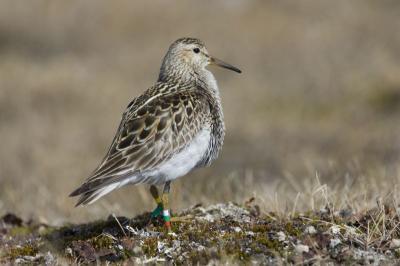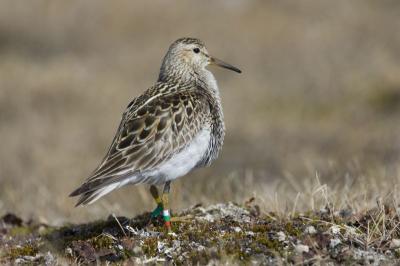Sleep deprivation can be harmful, but in the case of male pectoral sandpipers, new European research shows birds that sleep less during the mating season have more offspring.
The breeding season for this sandpiper species, Calidris melanotos, lasts for three weeks during the Arctic summer, when the sun never sets. If a male doesn’t sleep as much, he can use all those extra hours of daylight to find more mates.
“Males have to constantly repel their rivals through male-male competition and simultaneously convince females with intensive courtship display,” said study co-author Bart Kempenaers at the Max Planck Institute for Ornithology (MPIO) in Seewiesen, Germany, in a press release.
The researchers found that male pectoral sandpipers don’t get much rest during mating season. They’re active up to 95 percent of the time, and this is right after a long migration to Alaska from the southern hemisphere.
Researchers collected DNA from all the birds in the study area and used it to determine which males had the most young. They monitored the birds’ behavior and sleep patterns using radio transmitters and came to the conclusion that the most sleepless males had the most young.
“Males that slept the least had the deepest sleep,” said study co-author Niels Rattenborg, also at MPIO, in the release. This might have helped those birds compensate for sleeping less, but they still weren’t getting as much rest as the other birds.
Why did some of the male sandpipers sleep more than others, even though it wasn’t as good for their breeding?
“Long sleeping males may lack genetic traits that enable short sleeping individuals to maintain high performance despite a lack of sleep,” Kempenaers said.
The evidence suggests that sleep deprivation doesn’t always have to lead to reduced performance. In this case it’s actually helpful, and it doesn’t seem to harm the birds in the long run, for example males that fathered more offspring also tended to have more offspring the following year.
The study was published in Science on Aug. 10.
The Epoch Times publishes in 35 countries and in 19 languages. Subscribe to our e-newsletter.





